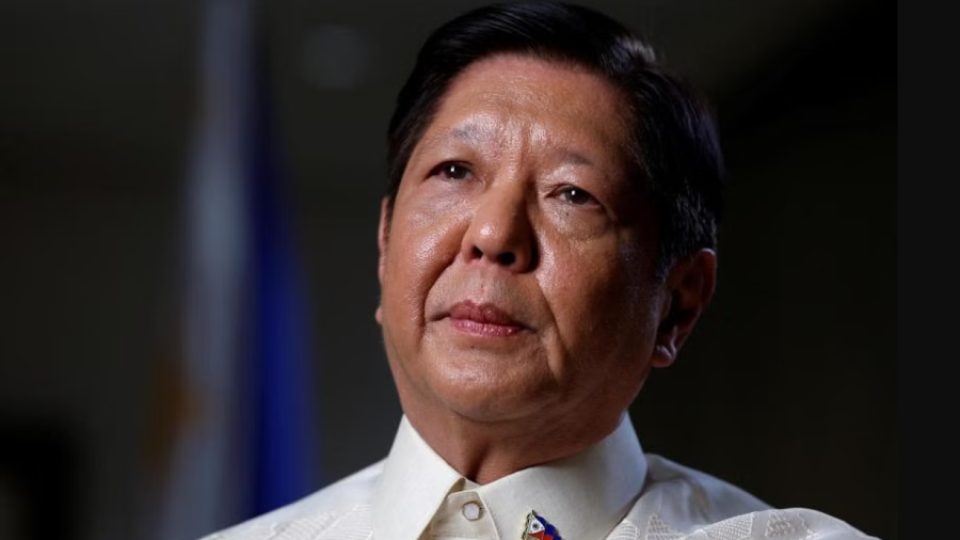July 25, 2023
MANILA – President Ferdinand Marcos Jr has touted his government’s efforts to keep the Philippines on the list of Asia’s fastest-growing economies despite the soaring prices of goods, the biggest problem to plague his administration so far.
In his annual State of the Nation Address on Monday, Mr Marcos said his administration is doing everything it can to ensure that prices remain stable.
“Inflation rate is moving in the right direction… We are stabilising the prices of all critical commodities,” he said. “There are many things over which we have no control. But over those where we do have control, we are doing everything we can.”
The inflation rate eased to 5.4 per cent in June, its fifth straight month of deceleration from the peak of 8.7 per cent in January. A year ago, in June 2022, inflation was at 6.1 per cent.
Though scant in specifics, the President said he plans to boost agricultural production by modernising value chains, which will be augmented by “timely and calibrated” importation.
He vowed to clamp down on existing cartels that hoard supplies and manipulate prices of agricultural products, a bane of his administration, which aims to turn farms into engines of growth.
Cartel activities have led to hikes in prices of key food staples like rice and onions, whose production is plagued by perennial problems like unfavourable weather patterns, lack of support for farmers and supply chain issues.
Onions have become a symbol of inflation, with their price ballooning six times to 600 pesos (S$14.60) per kilogram by the end of 2022.
“We are going after you… What these cartels are doing is cheating. The days of these smugglers and hoarders are numbered,” Mr Marcos said.
Since rising to power in June 2022, Mr Marcos has been steering the Philippines through the impacts of a pandemic and ballooning national debt, which stood at 13.86 trillion pesos as at end-March.
While the soaring prices of goods remain a thorny issue for his government, the President remains wildly popular among Filipinos and enjoys majority support in both chambers of Congress. His approval and trust ratings were at 78 per cent and 80 per cent, respectively, in the March survey of local pollster Pulse Asia Research.
Days before his speech, he set the tone of his second year in power by launching a new government slogan, “New Philippines”. It is a nod to his late dictator father and namesake, whose two-decade rule had its own slogan, “New Society”.
Some of President Marcos’ policies as concurrent agriculture chief are a revival of his father’s flagship programmes. These include the Kadiwa programme, where the government helps farmers sell their produce directly to consumers, and the newly launched food stamp programme for poor families.
Just this month, he signed off on a law that wrote off 57.557 billion pesos’ worth of loans owed by more than 610,000 farmers.
But these initiatives are merely stopgap measures, explained political science lecturer Cleve Arguelles of the De La Salle University in Manila.
He said President Marcos’ one-hour-and-11-minute-long speech failed to lay down a clear vision and specific plans on how the government will further ease inflation in the coming months.
“I would have wanted to hear a more comprehensive plan,” Mr Arguelles said. “Some regions in the country are experiencing higher inflation than others. Is there something about regional development that the government should be focusing on to ensure that food prices are lowered across the country?”
Mr Marcos also cited the Philippines’ first sovereign wealth fund, designed to help the country make investments without incurring additional debt. But critics pointed out that its broad provisions are open to abuse.
The President said the fund will be used to finance some of the country’s high-priority projects, including key infrastructure programmes.“The gains from the fund shall be reinvested into the country’s economic well-being,” he said.
Despite domestic woes, the Philippine economy is growing faster than expected and has been outperforming its Asian neighbours in the first quarter of 2023.
Latest available data from countries that have released their gross domestic product growth so far showed the Philippines leading with a growth rate of 6.4 per cent, followed by Indonesia with 5 per cent, China with 4.5 per cent, and Vietnam with 3.3 per cent.
Mr Arguelles said President Marcos is now being challenged to strongly lobby for the priority Bills he mentioned in his speech to help boost the economy. Among them are new taxes on single-use plastics and digital services, as well as amendments to the government codes on procurement and auditing processes.
“He has control of Congress, but it isn’t working to pass his legislative initiatives. It would be all promises but no work done if that’s what’s going to happen every time he delivers his State of the Nation Address,” Mr Arguelles said.

